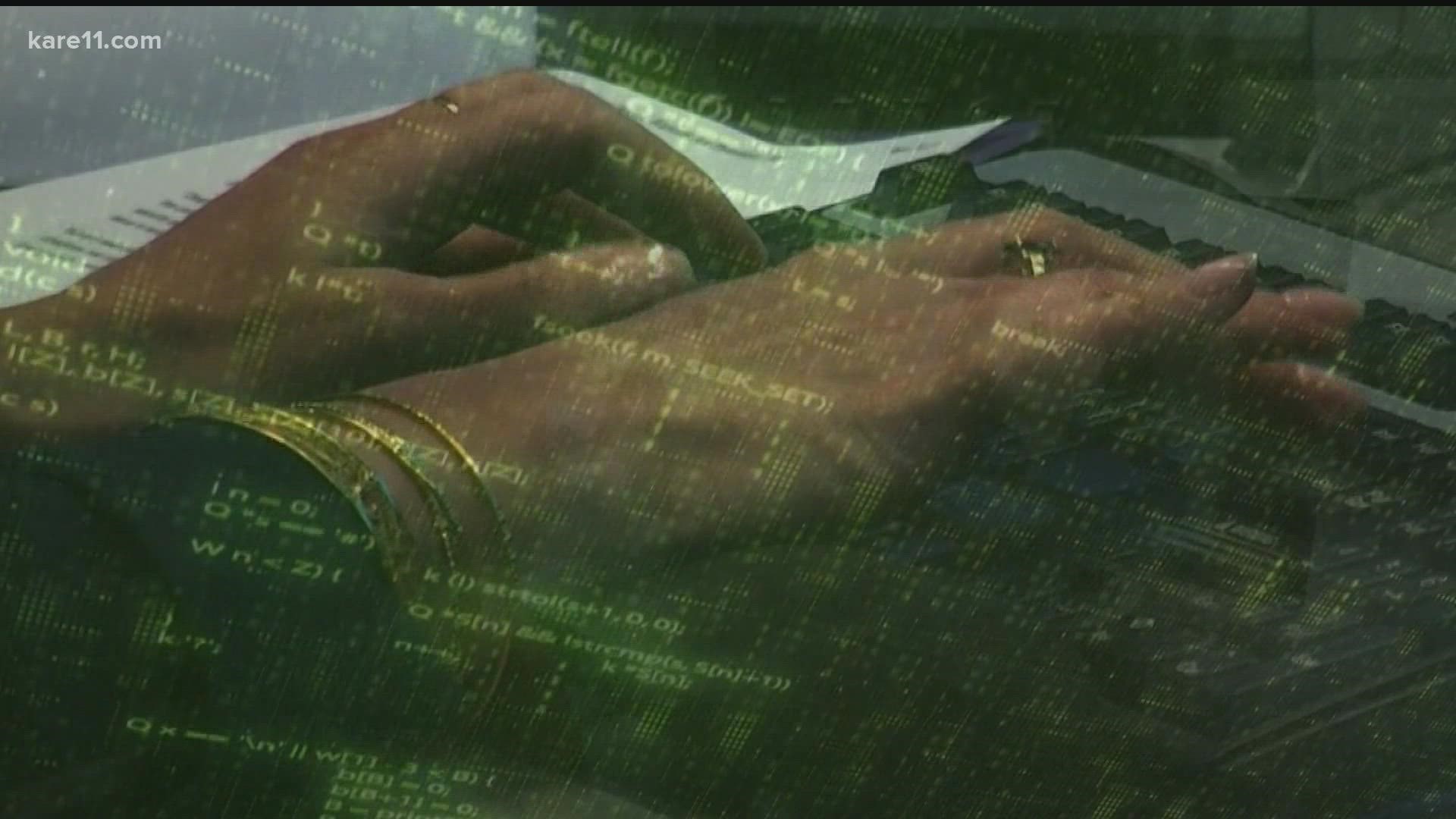MINNEAPOLIS — It's always a little unsettling to hear warnings from the White House.
Monday, Deputy National Security Advisor Anne Neuberger said they're prepared to respond to any cybersecurity attacks coming from Russia.
"There was some preparatory activity that we're seeing and that is what we shared in a classified context with companies who we thought might be affected," Neuberger said. "And then we're lifting up a broader awareness here in this, in this warning."
But ensuring cybersecurity is a 365 day, 24/7 operation, according to senior security analyst Nancy Skuta with Minnesota IT.
"Everyday we are making sure that we are scanning our systems in the state, we're making sure that any of our vulnerabilities that we are detecting, that we're working to get them patched and remediated right away," Skuta said.
Brad Nigh at FR Secure, a cybersecurity company agrees. He said while vigilance is high right now during global unrest, he's not too worried at this point.
"I think odds are fairly low that Russia actually does anything super disruptive," he said. "We're in their systems as much as they're in ours."
And only really, the 16 critical infrastructure sectors identified by the cybersecurity & infrastructure agency should remain on high alert.
But that doesn't mean the average American shouldn't practice good internet hygiene.
"I think it's always good to be vigilant when it comes to our passwords and with passwords, it's a lot about length, too, and making sure it's a pass phrase," Skuta said. "If you're reading a book, consider a line from the book, consider the book title, making it longer — makes it more difficult for that password to be hacked."
"Use a password manager, there's a lot of really good ones out there, don't use the same password on any two sites," Nigh added. "From your home network, understand what is talking to the internet. The IoT — is your TV your dishwasher — are they talking on the internet on the same network that you're doing banking on? Could someone get in and exploit it? Again, odds are very low, but it's more about the basics of understanding what assets you have."
And yes, while no foreign country might be interested in hacking you personally, Skuta said the basics are important because we're all connected.
"Getting into our systems a lot of times is what a hacker might be looking for, and what else we are connected to," she said. "There's part of the reason why there's info out there about all of us staying safe and secure, because we're all interconnected. I send an email, you send an email we're connected. The more secure we are as individuals, the greater the security is across the board."
Watch more Breaking The News:
Watch all of the latest stories from Breaking The News in our YouTube playlist:

